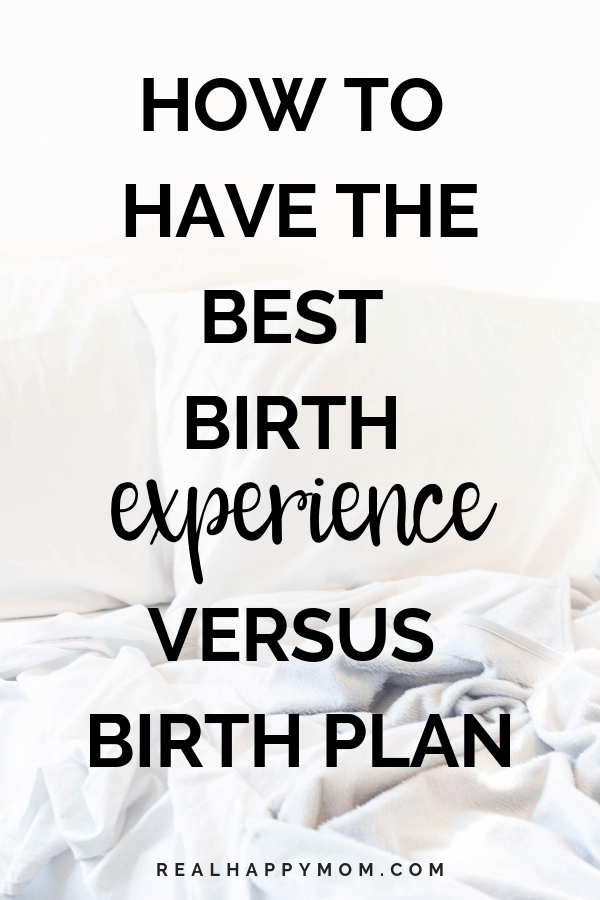In this episode of the podcast, I am talking to Jamie from Birthing Confidence.
Jamie is a Lamaze certified Lamaze educator and a birth Doula. And been working with expecting and new families for over four years.
This episode is to help you change the way that you think about birth plans. Instead of preparing a birth plan, Jamie will show you why it is best to prepare a birth experience.
The most common concerns amongst expecting mothers
Being pregnant comes with many fears and concerns. With the amount of experience Jamie has, there are common concerns and that expecting mothers have over and over again.
I think there’s a lot of fear of the unknown. Especially, and I would say that, it’s fear of the unknown for first-time moms. But also I think every subsequent birth comes with some level of fear of the unknown.
Usually, there is some level of fear or worry about the unknown.
If expecting moms aren’t concerned about that, Jamie shares that another common concern is the amount of pain during labor and the length of labor.
Then for subsequent moms, there is the concern that is this pregnancy going to be as painful or more painful than previous pregnancy.
With these concerns, many moms are encouraged to have a birth plan to help prepare for the birth they desire by determining what they want to do to help manage these concerns.
Instead of focusing on a birth plan Jamie suggests focusing on developing a birth experience.

Why you should focus on developing a birth experience
When focusing on developing a birth plan, moms tend to determine, for instance, if they want an IV or not. Or if they want an epidural or not.
And these are good decisions to make ahead of time, but the issue becomes that their decisions that really aren’t based on the reality of the situation.
Jamie explains that we should think of the IV and epidural as tools. Different tools are needed to accomplish a different task.
Let’s say you had a toolbox and you were headed to a construction job. You don’t throw out half your tools before you even get there because you don’t think you’ll need them or don’t want to use them. You bring your whole tool box. Assess the situation and take up the tool you need when you need it. So, I think birth plans, the way that many are set up today, the way we prompt expecting parents to create birth plans is setting up them up to hold true to decisions on what tools to use and not use without having all the information they need to make informed decisions on what tools might be needed.
Because of this, many moms feel like they have failed because they had to use a “tool” that they listed that they did not want to use during birth on their birth plan. Jamie has even heard several clients say that they were to weak or not prepared enough to ensure that their birth plan was implemented.
The truth is, you can’t control what is going to happen during birth. So don’t disregard tools unless you have all of the information.
For this reason, and many more, Jamie focuses on a birth experience versus a birth plan.
You focus on the things that you can control, which is how you experience birth. And how people around you behave in order to help you continue to facilitate the type of birth experience you’re seeking.
When you look at people that do a more traditional birth planning and really hone in on that I want this, “I don’t want that” kind of mentality versus people that really went in and saying, “I would like to avoid this or that.” But it’s ultimate ultimately what my goal is to have this type of birth experience. I see just a huge difference in the level of satisfaction with births. When I compare those two types of preparation disciplines.

Questions to help you develop your birth experience
Let use the common scenario: I don’t want a c-section
C-sections are the first tool that we throw out of our toolbox and we don’t even learn how to use it. And so that becomes a really big problem when all of a sudden, maybe the baby is breach at 39 weeks and we have to prepare for a c-section or we’re in the middle of labor and it turns out that a c-section becomes necessary.
Remember you don’t want to throw tools out of the toolbox before getting to the construction site. Sometimes c-sections are necessary for the health of the baby and for you. Instead of focusing on not wanting a c-section focus on what you can control.
Focusing on the things you can control will leave you to feel empowered and reduce the stress that may arise during pregnancy and childbirth.
Questions to help you develop a birth experience
Start by answering these questions:
- How do you want your birth experience to be?
- What type of feeling do you want during your birth experience?
- Do you want to feel …
- powerful?
- at peace?
- healed?
- respected?
- love and support?
- How do you want to define your birth experience?
Next, you want to play out different scenarios. From your ideal birth experience to when things happen that you least expect.
For each scenario, what will it take for you to stay in the zone of the birth experience that you desire? For instance, if you want your birth experience to feel loving, what needs to happen if you were to have an unplanned c-section to continue feeling loving?
- Do you need immediate skin to skin?
- Do you want to have music playing?
- How does your partner need to act?
- What do your partner and doula need to do for you?
- Do the lights need to be dimmer?
- Do people in the room need to avoid side chatter?
By focusing on your birth experience you open up new possibilities and a new way to measure pregnancy and birth.
Plus, you are focusing on the things that you can control and you are better able to plan ahead of time.
It’s your birth, that’s the way that you want it. No matter how it plays out or how it happens. So that’s just one example of how we could get beyond just looking at it as this versus that. Or a procedure versus not a procedure. A tool versus not a tool. And really look at what are the things that we can bring into the situation. But more importantly, how can the people around you behave in this situation in order to help facilitate the feelings that you’re desiring to feel during this special time?
Knowing what type of birth experience you want and keeping it in the back of your mind will help you to ask your provider and doula the right questions.
I think you always should go over any type of birth preferences or plans that you make or desires or expectations you have with your entire birth team, especially your medical provider.

To the mom that had an unplanned c-section
At the time you did the right thing for you and your baby by pulling out that tool. When I have moms that end up having c-sections that were not planned, I try and remind them that beating themselves up about it is like feeling bad that you had to pull out a hammer to nail a picture into the wall when all you wanted to use was the screwdriver. It’s just not fair. It’s not fair to think of it in those terms. You were using the exact tool you needed to use at that moment.
I know it is hard, but don’t beat yourself up about it.
Also, know that having a vaginal birth after a c-section is possible. Jamie mentioned that it does take some work to find the right healthcare consultant and birthplace that truly believes in vaginal birth after cesarean or a VBAC.
Jamie points out that birth experience still applies here.
There’s a big difference between I want to have cesarean and I want to have a peaceful and healing. When you ask there’s all new opportunities when you bring in the idea of what can we do to make this a more peaceful and healing experiences.
Remember this:
How the baby actually emerges out of view is a very small piece of an overall long journey that you’ve taken to get there. So it’s really important to remember that.

To learn more about Jamie, head over to her website. You can also check her out on Instagram and on Facebook.

Key takeaways:
- Don’t throw out tools out of the toolbox before getting to the construction site
- Focusing on developing a birth experience versus a birth plan
- Focus your decisions on what type of feeling you want to have during your birth experience
Links mentioned in this episode:
- Birthing Confidence
- Parents Building Confidence for Birth Facebook Group
- Instagram @birthingconfidence
- Free 2019 Planner
Subscribe & Review in iTunes
Have you subscribed to the Real Happy Mom podcast? If not, I’m encouraging you to do it today.
I don’t want you to miss any upcoming episodes. I am planning on adding some bonus episodes that you won’t find on this website and if you’re not subscribed you might miss out on those. Click here to subscribe in iTunes!
I would be so happy and grateful if you left me a review on iTunes too. Reviews help iTunes to know that this is a podcast for other moms so that other moms can find this podcast. Plus, it really makes my day to read the reviews.
Just click here to review, select “Ratings and Reviews” and “Write a Review” and let me know what your favorite part of the podcast is. Thanks in advance!
Don’t have iTunes? You can subscribe to the podcast Google Podcast, Anchor, Spotify, Breaker, Castbox, Overcast, RadioPublic, and Stitcher.
